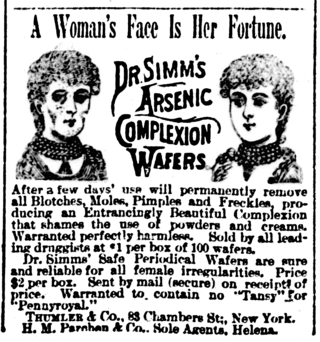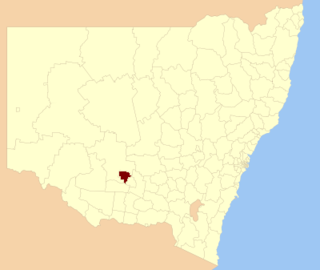Related Research Articles

Pilgrim's Pride Corporation is an American, multi-national food company, currently one of the largest chicken producers in the United States and Puerto Rico and the second-largest chicken producer in Mexico. It exited bankruptcy in December 2009 and relocated its U.S. headquarters to Greeley, Colorado, in 2011. It is majority-owned by JBS S.A. Pilgrim's Pride purchased Gold'n Plump for $350 million in late November 2016.

False advertising is the act of publishing, transmitting, or otherwise publicly circulating an advertisement containing a false claim, or statement, made intentionally to promote the sale of property, goods, or services. A false advertisement can be classified as deceptive if the advertiser deliberately misleads the consumer, rather than making an unintentional mistake. A number of governments use regulations to limit false advertising.

Tyson Foods, Inc. is an American multinational corporation based in Springdale, Arkansas that operates in the food industry. The company is the world's second-largest processor and marketer of chicken, beef, and pork after JBS S.A. It annually exports the largest percentage of beef out of the United States. Together with its subsidiaries, it operates major food brands, including Jimmy Dean, Hillshire Farm, Ball Park, Wright Brand, Aidells, and State Fair. Tyson Foods ranked No. 79 in the 2020 Fortune 500 list of the largest United States corporations by total revenue.

Free-range eggs are eggs produced from birds that may be permitted outdoors. The term "free-range" may be used differently depending on the country and the relevant laws, and is not regulated in many areas.

Free range denotes a method of farming husbandry where the animals, for at least part of the day, can roam freely outdoors, rather than being confined in an enclosure for 24 hours each day. On many farms, the outdoors ranging area is fenced, thereby technically making this an enclosure, however, free range systems usually offer the opportunity for the extensive locomotion and sunlight that is otherwise prevented by indoor housing systems. Free range may apply to meat, eggs or dairy farming.

Inghams Enterprises, commonly known as Inghams, is listed on the Australian Securities Exchange (ASX) and is a supplier/producer of poultry and fodder across Australia and New Zealand. The company claims to be one of the largest producers of chicken and turkey products in Australia and employs in excess of 8,000 people in more than 100 locations in Australia and New Zealand. The company was founded in 1918 and was managed by members of the Ingham family from its establishment until 2014, including Walter Ingham and his two sons, Jack Ingham and Bob Ingham. TPG Capital acquired Inghams in 2014 for A$880 million. Inghams was listed on the ASX in November 2016.

The Packers and Stockyards Act of 1921 regulates meatpacking, livestock dealers, market agencies, live poultry dealers, and swine contractors to prohibit unfair or deceptive practices, giving undue preferences, apportioning supply, manipulating prices, or creating a monopoly. It was enacted following the release in 1919 of the Report of the Federal Trade Commission on the meatpacking industry.

The City of Griffith is a local government area in the Riverina region of south-western New South Wales, Australia. The area comprises 1,640 square kilometres (630 sq mi) and is located in the Murrumbidgee Irrigation Area and on Kidman Way.
Beresfield is a north-western suburb of Newcastle, New South Wales, Australia 22 kilometres (14 mi) from Newcastle's central business district. It is part of the City of Newcastle local government area.
ExxonMobil Australia is an Australian affiliate of ExxonMobil, the U.S.-based oil giant. It operates a number of oil and gas platforms in Bass Strait, south east of Melbourne, Australia, as well as a gas processing facility at Longford and Long Island Point (LIP) in Hastings.

The Poultry Co-operative Research Center, or Poultry CRC, is a joint venture established and supported under the Australian Government's Cooperative Research Centre Programme.

Poultry farming is the form of animal husbandry which raises domesticated birds such as chickens, ducks, turkeys and geese to produce meat or eggs for food. Poultry – mostly chickens – are farmed in great numbers. More than 60 billion chickens are killed for consumption annually. Chickens raised for eggs are known as layers, while chickens raised for meat are called broilers.

Poultry farming is a part of the United States's agricultural economy.
The Fair Work Ombudsman(FWO) (or formally, the Office of the Fair Work Ombudsman), is an independent statutory agency of the Government of Australia that serves as the central point of contact for free advice and information on the Australian national workplace relations system. The Office of the Fair Work Ombudsman also investigates workplace complaints and enforces compliance with national workplace laws.

The Office of the Australian Building and Construction Commissioner (ABCC) (2005–2012) was an independent, statutory authority, responsible for monitoring and promoting workplace relations in the Australian building and construction industry. The ABCC provided education, investigated workplace complaints and enforced compliance with national workplace laws in the industry. The ABCC did this by:
The No Land Tax Campaign was a minor Australian political party formed prior to the 2015 New South Wales state election. It was formed in opposition to the levying of land tax, which in New South Wales applies to investment properties and holiday homes. The party achieved 1.90% of Legislative Council and 2.02% of Legislative Assembly votes at the election, but its failure to honour a promise to 3,600 workers to pay them $30 an hour ultimately led to legal trouble for the party.
Labor rights in the American meatpacking industry are largely regulated by the National Labor Relations Board (NLRB), which regulates union organization. The Occupational Safety and Health Administration regulates the safety and health conditions applicable to workers in the American meat packing industry. According to scholars of the American meat packing industry, despite federal regulation through OSHA and industry oversight, workers in meat production plants have little agency and inadequate protections. Workers in the industry perform difficult jobs in dangerous conditions, and are at significant risk for physical and psychological harm. In addition to high rates of injury, workers are at risk of losing their jobs when they are injured or for attempting to organize and bargain collectively. Several of studies of the industry have found immigrant workers—"an increasing percentage of the workforce in the industry."

The meat industry has been severely affected by the COVID-19 pandemic in the United States. Outbreaks of the virus took place in factories operated by the meat packing industry and the poultry processing industry. These outbreaks affected dozens of plants, leading to closures of some factories and disruption of others, and posed a significant threat to the meat supply in the United States. The damage the COVID-19 pandemic brought to the meatpacking industry was unexpected and resulted in a sharp reduction of meat processing and capacity reduction of meatpacking companies.

During the COVID-19 pandemic in Canada, outbreaks of the virus took place in factories operated by the meat packing industry and the poultry processing industry. These outbreaks affected multiple plants, leading to closures of some factories and disruption of others, and posing a threat to the food supply in Canada.

Fair Work Ombudsman v Quest South Perth is a 2015 decision of the High Court of Australia. Quest, a company operating serviced apartment hotels across Australia, used a third-party labour hire company to change the employment status of two housekeepers and a receptionist from employees to independent contractors at its South Perth site. They would then no longer be owed the minimum workplace entitlements owed to employees in Australia. The Fair Work Ombudsman, an authority responsible for enforcing Australian workplace laws, initiated proceedings against Quest South Perth in the Federal Court of Australia.
References
- ↑ Who we are Baiada. Retrieved 14 April 2012.
- 1 2 3 "Statement of Findings – Baiada Group" (Press release). Fair Work Ombudsman. 18 June 2015. Retrieved 12 November 2015.
- ↑ Strike threatens chicken supply The Age, 17 November 2011. Retrieved 14 April 2012.
- 1 2 "Enforceable Undertaking dated 15 Dec 2011 Given by BPL Adelaide P/L". Fair Work Ombudsman. 15 December 2011. Retrieved 12 November 2015.
- ↑ Marriner, Cosima (18 September 2011). "Free to roam". Sydney Morning Herald . Retrieved 12 November 2015.
- 1 2 "Court orders chicken companies to pay $400,000 for 'free to roam' misleading claims" (Press release). Australian Competition & Consumer Commission. 31 October 2013. Retrieved 12 November 2015.
- ↑ Four Corners Investigation. Retrieved 17 May 2015.
- ↑ Baiada's response to the investigation Archived copy Baiada. Retrieved 17 May 2015.
- 1 2 3 Patty, Anna (19 October 2015). "Baiada labour hire companies continue to exploit overseas workers despite Fair Work Ombudsman warning". Sydney Morning Herald . Retrieved 12 November 2015.
- ↑ "Foreign workers exploited at Baiada chicken processing plants: Fair Work Ombudsman finds". Lateline . 18 June 2015. Retrieved 12 November 2015.
- ↑ "Baiada declares 'moral and ethical' responsibility to stamp out contractors' unlawful practices at its worksites" (Press release). Fair Work Ombudsman. 26 October 2015. Retrieved 12 November 2015.